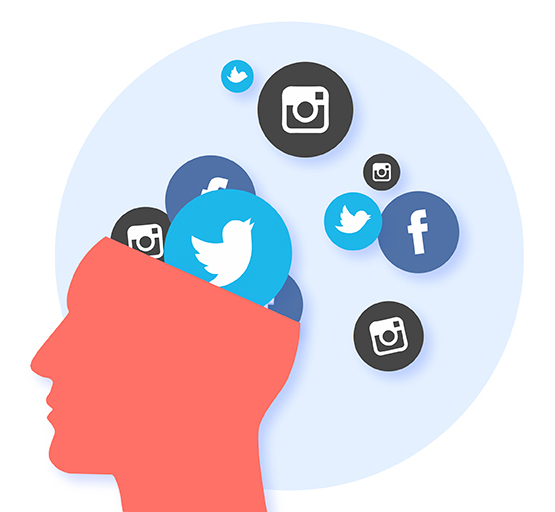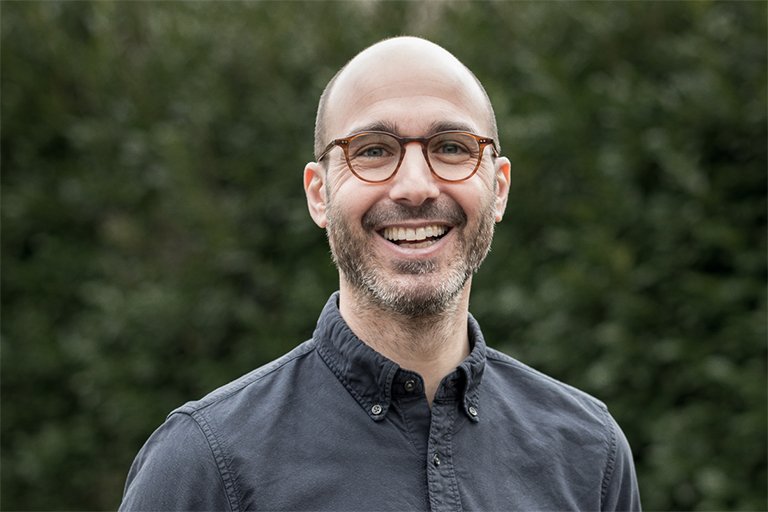There’s no anonymous support group or official medical diagnosis for social media addiction — at least not yet. However, new research suggests that compulsive use of these social media network sites may be more than an innocuous habit.
Fueled by his curiosity about human behavior both online and off, Dar Meshi is studying social information processing, social influence and social decision making as an assistant professor in the Department of Advertising and PR.
“It’s just an innate curiosity about understanding why people do what they do, myself included,” said Meshi. “As I got older, social interactions and watching the people around me seemed to be more interesting.”
Meshi earned his bachelor’s and Ph.D. degrees in biology before ending up at Ogilvy & Mather in New York City where he helped advertise pharmaceutical brands. Now he’s working to see if excessive social media use and substance abuse have physiological similarities in the brain.
Human Observation
One afternoon, Meshi was scrolling through Facebook and had the same thought that we’ve all had: Why do some people use social media so much more than others?
“I have this neuroscience background, and I thought to myself, ‘I could design a study where I can ask that question from a neuroscience perspective,’” said Meshi.
So he did just that. Meshi conducted a study in which participants sat inside an MRI scanner and he gave them social rewards, such as telling them they were polite or honest. Then, he looked at the parts of the brain that responded to these rewards.
“I was able to show a relationship between how an individual’s brain responds to social rewards and how much they self-reported going on social media,” said Meshi. “If there was a small activation, they weren’t going on social media a lot, but if there was a big activation, they were.”
Meshi’s data suggest that the individuals who use social media excessively might have the same underlying neurophysiology as people who use other substances excessively.
Patterns of Addiction

As time went on, Meshi became more and more interested in studying individuals’ behavior online and he began to wonder if excessive social media users would show the same psychological patterns as individuals with substance or gambling addictions.
Cue the Iowa Gambling Task, a simulation designed to represent real-life decision making. In the task, four decks of cards are presented on a computer screen, two of which are considered “bad decks.” They have larger rewards than the “good decks,” their payouts are infrequent and are more likely to punish the player. Individuals with addictions tend to play the bad decks more often because of the potential for a higher payout.
Meshi conducted another study in which social media users completed the task. Preliminary data suggests that those who self-reported excessive social media use demonstrate the same behavioral decision-making tendencies as addicts when participating in this task. He has submitted his findings to the ICA and will be presenting his research in Prague later this year.
Moving Forward
Meshi’s unique background in both neuroscience and advertising makes him the perfect fit for ComArtSci. When he came across the college’s job posting last year, he felt it was the ideal opportunity to further his research.
“There are huge advantages to being in a college of communication, especially one of this magnitude, stature and ability,” said Meshi. “If I was just working in a psychology or neuroscience department, I wouldn’t have access to all these toys and amazing collaborators. I’m surrounded by people who have really impressive skill sets who are working with cutting edge technologies. I’m looking forward to answering some very interesting questions with my colleagues.”
With his first semester at MSU now under his belt, Meshi plans on using the spring semester to develop a way to collect more accurate data for his studies. He has hired a computer science student to program an app that can be downloaded onto cellphones to track the amount of time a social media application is open.
“You’re introducing a lot of noise into the data if you’re using self-reporting as a measure,” said Meshi. “Now we’ll see when social media users are really going on and when they’re going off and we’ll know how that affects their well-being.”
Meshi hopes to test a theory that suggests a negative correlation between adolescents’ use of social media and their use of substances. This app will allow Meshi to calculate the time they spend on social media with more accuracy, as self-reported information leaves plenty of room for error.
“Overall, my research program is aimed at better understanding excessive social media use or just how regular social media use is associated with factors such as depression, mood and substance use,” said Meshi.
By Kaitlin Dudlets
